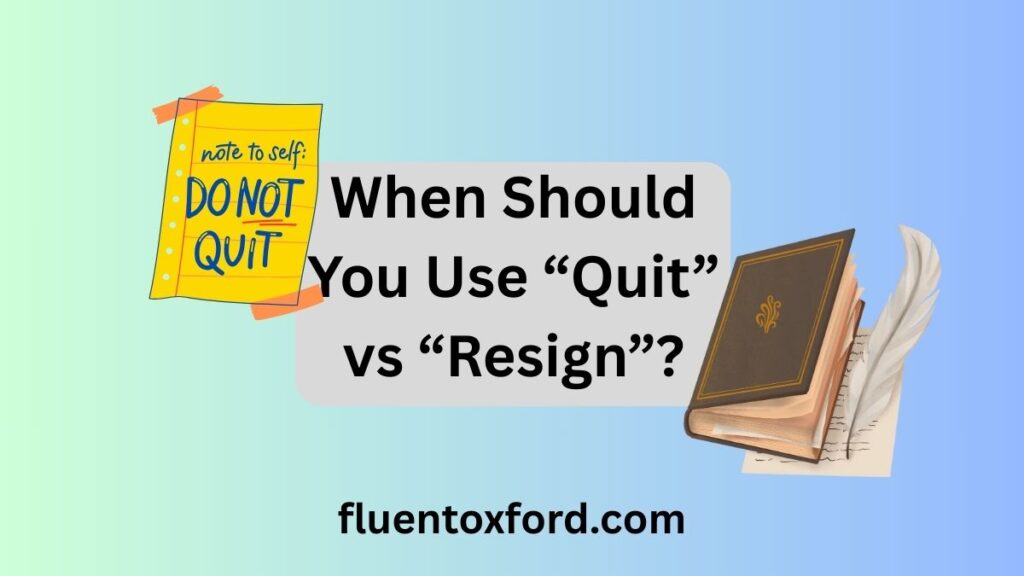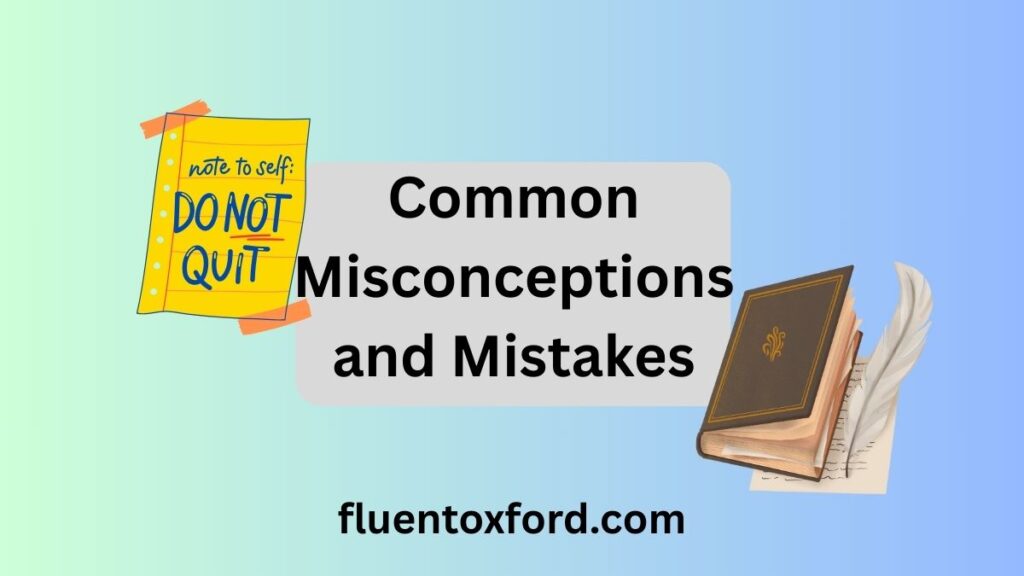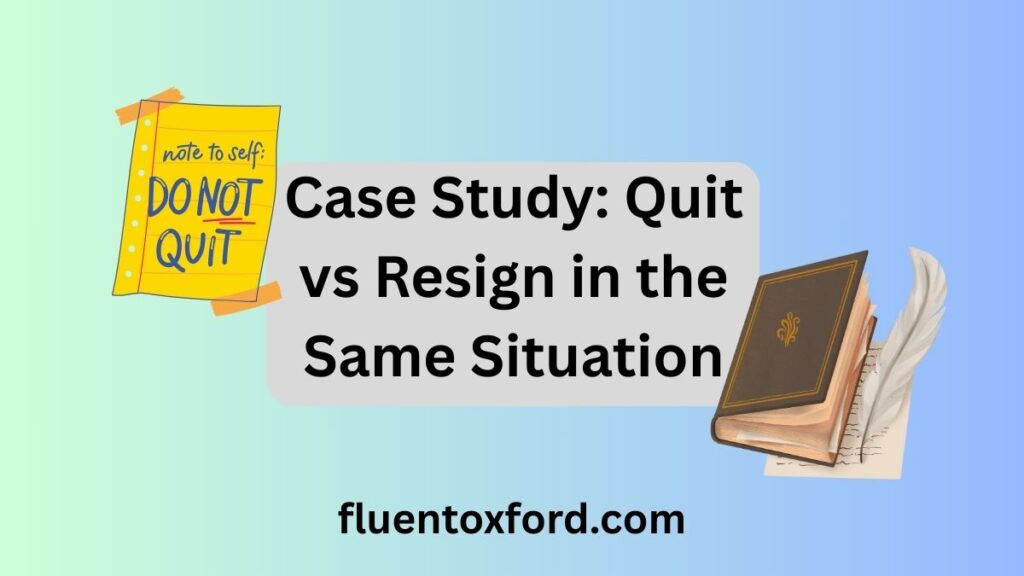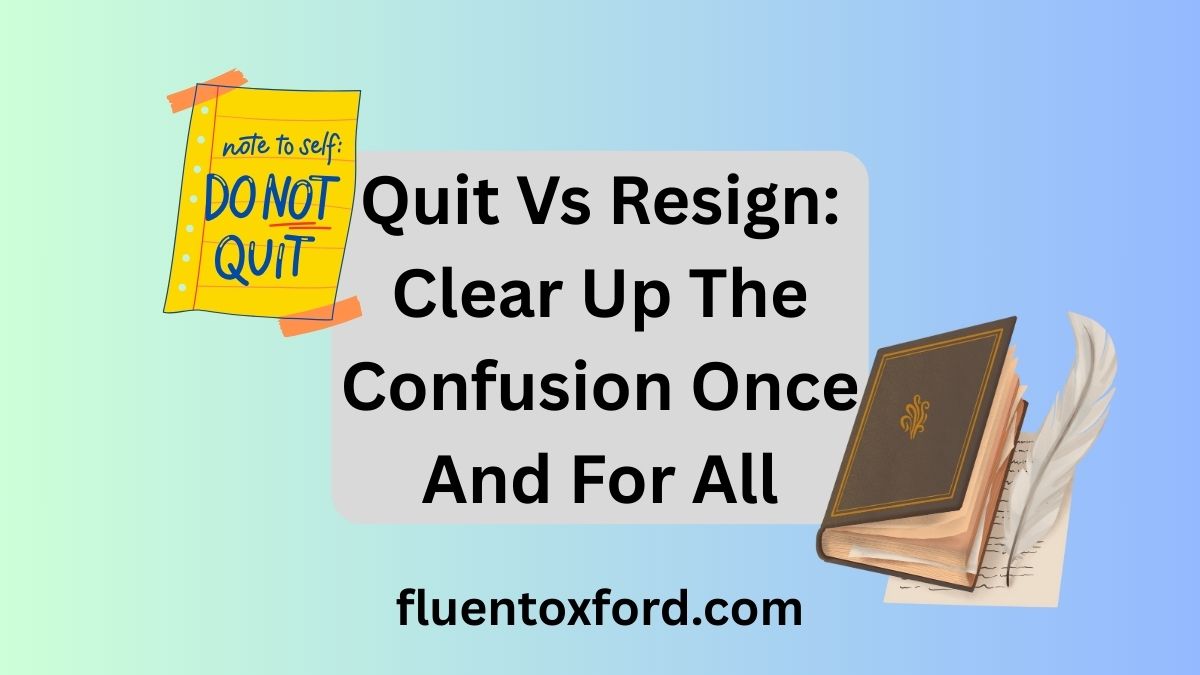The phrase “Quit vs Resign: Clear Up the Confusion” addresses the often-overlooked distinctions between two commonly used terms in the workplace. “Quit” typically implies an informal or abrupt decision to leave a job, often without prior notice or detailed explanation. On the other hand, “resign” carries a more formal tone, generally involving a structured process, notice period, and often a letter of resignation. Though both actions result in an employee leaving their role, the context, tone, and implications can differ significantly.
In today’s fast-evolving professional landscape, understanding the subtle differences between quitting and resigning isn’t just about semantics—it can shape reputations, influence career trajectories, and affect future opportunities. This topic holds special relevance for employees, HR professionals, and job seekers alike who value clarity in communication and decision-making. A clear grasp of this difference empowers professionals to exit with grace and integrity.
This guide on “Quit vs Resign: Clear Up the Confusion” will demystify both terms and equip you with the knowledge to choose the right expression for the right situation. Whether you’re navigating a career transition or advising others, understanding the nuances of quit vs resign: clear up the confusion can make a crucial difference in how intentions are perceived and decisions are respected.
Why “Quit” and “Resign” Confuse People
Language evolves, and often, similar words pick up overlapping meanings. That’s what happened with quit and resign. They’re both verbs describing job-related actions, but the setting, tone, and intention behind each can differ dramatically.
“I quit my job last week” sounds a lot different than
“I resigned from my position last week,” doesn’t it?
This confusion stems from:
- Formality differences
- Varying emotional undertones
- Media and pop culture usage
- Regional and industry-specific preferences
Understanding these nuances matters—especially in situations that impact your professional image.
The Real Difference Between Quit vs Resign
Here’s a quick side-by-side comparison that captures the main distinctions:
| Feature | Quit | Resign |
| Tone | Informal | Formal |
| Common Usage | Spoken language, casual conversation | Written communication, official documents |
| Connotation | Abrupt, emotional, sometimes negative | Planned, respectful, positive/neutral |
| Typical Context | Any job, often entry-level or casual roles | Professional settings, executive or office jobs |
| Implication | May suggest dissatisfaction or conflict | Implies a personal decision and professionalism |
| Used in Resignation Letters? | Rarely | Always |
When Should You Use “Quit” vs “Resign”?

Use “Quit” When:
- You’re speaking informally with friends, family, or on social media.
- The situation was abrupt or involved personal emotion.
- The context doesn’t require formality, like part-time jobs or gigs.
Examples:
- “I quit because I couldn’t take the stress.”
- “He just quit without giving a notice period.”
Use “Resign” When:
- You’re submitting a resignation letter.
- The departure is professional, respectful, and planned.
- You’re working in a corporate, government, or formal job-related action setting.
Examples:
- “I formally resigned after 10 years with the company.”
- “She submitted her resignation and followed all proper procedures.”
Pro Tip: If your goal is to protect your professional image, always choose resign when the setting is official or public.
Real-World Examples of “Quit” and “Resign” in Use
News Headline Examples:
- Quit: “Tech CEO Quits Amidst Scandal”
- Resign: “Secretary of Defense Resigns Citing Policy Disagreements”
In the Workplace:
- Colleague to Colleague: “I’m thinking of quitting. This place drains me.”
- Email to Manager: “I’d like to formally submit my resignation.”
On LinkedIn or Resumes:
Always use “resigned” instead of “quit” to maintain a professional tone.
Grammar 101: How “Quit” and “Resign” Function as Verbs
Both terms are primarily verbs, but they behave a little differently in usage.
Verb Forms
| Verb | Present Tense | Past Tense | Past Participle |
| Quit | quit | quit | quit |
| Resign | resign | resigned | resigned |
Examples in Sentences:
- “She quit her job without any warning.”
- “They resigned last week after announcing the merger.”
Common Mistakes:
- Saying “I resigned from my school” (use “quit” unless it’s formal).
- Mixing verb tenses: “He resign yesterday” → should be “resigned.”
Can “Quit” and “Resign” Be Adjectives?
This is where things get a little tricky—and rare.
“Quit” as an Adjective
While “quit” is primarily used as a verb, it can occasionally appear as an adjective, though this usage is somewhat rare. When used in this form, “quit” typically modifies nouns to describe something related to ceasing or stopping an activity.
Usage of “Quit” in Specific Contexts
You might encounter “quit” in phrases where it’s used to describe a state or condition tied to the cessation of an activity. For instance:
- Quit-smoking program: A program aimed at helping individuals stop smoking.
- Quit day: A day when someone decides to give up an addiction or habit, like quitting drinking or smoking.
In both examples, “quit” is a descriptive word modifying the noun and is closely linked to the act of stopping something.
Quit as a Modifier in Addictive Contexts
“Quit” is often used in the context of quitting addictive behaviors. In these scenarios, it works as an adjective to define the program or action centered around stopping the addiction:
- Quit-alcohol support group: A group for people who have stopped drinking.
- Quit-drinking initiative: A campaign or plan to encourage people to stop consuming alcohol.
Why “Quit” Is Rarely Used as an Adjective
While “quit” is commonly used as a verb, it’s not often used directly as an adjective. Most of the time, language prefers the use of more descriptive adjectives like “stopped,” “ceased,” or “terminated” when discussing actions or conditions linked to quitting.
“Resign” as an Adjective
While “resign” is predominantly a verb, it can also appear in an adjectival form. The word “resigned” (the past participle) is most commonly used to describe a state of acceptance or a calm, composed attitude, often in response to an unwelcome situation. In this sense, “resigned” conveys an emotional or mental state rather than an action.
Usage of “Resign” in Descriptive Contexts
When used as an adjective, “resigned” often refers to someone who has accepted a situation, often one that they cannot change. It describes a person’s demeanor or attitude, rather than the act of leaving a job.
Examples:
- Resigned expression: A facial expression that shows acceptance or defeat, often used when a person feels they cannot alter their circumstances.
- Resigned attitude: A mindset of acceptance or giving up on trying to change a situation.
“Resigned” in Emotional or Psychological Contexts
In emotional or psychological contexts, “resigned” is used to describe someone who has come to terms with an undesirable outcome. This use indicates that the person has emotionally surrendered to the situation.
Example:
- “After hearing the news, she had a resigned look on her face, as if she knew there was nothing she could do.”
“Resigned” in Literature and Narrative Writing
In literature, the term “resigned” is often used to characterize characters who have accepted their fate or an unavoidable turn of events. It’s a common descriptor in novels, plays, or films when a character is forced to confront something beyond their control.
Example:
- “The resigned hero faced the challenge ahead, knowing that this was the end of his journey.”
Why “Resign” Is Rarely Used as an Adjective
The verb “resign” itself doesn’t function as a standard adjective in common usage. It is “resigned” (the past participle) that acts as the adjective. This form describes a mental or emotional state, often linked to giving up control or accepting something reluctantly.
Common Misconceptions and Mistakes

Mistakes People Often Make:
- Using “quit” in a resignation letter.
- Thinking “resign” only applies to high-level executives.
- Believing “quitting” is always negative.
The Truth:
- Anyone can resign, from interns to CEOs.
- “Quitting” is not inherently unprofessional—it depends on context.
- Proper procedures (like giving a notice period) matter more than which word you use.
“It’s not the word—it’s the way you leave that defines your legacy.”
Synonyms and What They Really Mean
Synonyms for Quit
• Leave – Exit from a position/job
• Resign – Formally step down voluntarily
• Depart – Go away from place
• Abandon – Leave something without return
• Exit – Move out or leave area
• Drop out – Withdraw before completing something
• Give up – Stop trying or continuing
• Walk out – Leave suddenly in protest
• Step down – Leave a leadership position
• Retire – Leave permanently due to age
Nuance: These often carry stronger connotation of quitting, such as suddenness or frustration.
Synonyms for Resign
• Step down – Leave a formal position
• Quit – Voluntarily leave a job
• Retire – Leave work due to age
• Leave office – Exit official job role
• Bow out – Withdraw gracefully from role
• Give notice – Inform employer before leaving
• Stand down – Relinquish role or authority
• Withdraw – Pull back from position
• Vacate – Leave position or space
• Abdicate – Give up high authority
Nuance: These usually suggest dignity, forethought, and a personal decision made with care.
Etymology: Where Do These Words Come From?
The History of “Quit”
- Origin: Latin quietus, meaning “free, calm, at rest”
- Middle English: evolved to mean “release or let go of responsibility”
- Modern use: adopted a tone of abruptness, especially in workplace contexts
The History of “Resign”
- Origin: Latin resignare, meaning “to unseal, give up formally”
- Historical use: used in law and governance
- Modern use: retains its formal, planned tone and remains a staple in formal context
Case Study: Quit vs Resign in the Same Situation

Scenario:
Two employees leave the same company.
- Alex tells their manager, “I’m done. I quit.” Leaves same day.
- Jordan sends a resignation letter, gives two weeks’ notice period, transitions duties.
Result:
- Alex gets no reference, leaves under tension.
- Jordan maintains a good relationship, gets a positive LinkedIn recommendation.
Moral: Same end goal—leaving a job. Totally different professional outcomes.
Choosing the Right Word in the Right Setting
Here’s a cheat sheet:
| Situation | Use “Quit” or “Resign”? |
| Writing a resignation letter | Resign |
| Talking casually to a friend | Quit |
| Posting a job update on LinkedIn | Resign |
| Explaining an emotional departure | Quit |
| Formal email to HR | Resign |
| Spontaneous exit during a conflict | Quit |
Conclusion
In the end, understanding the topic Quit vs Resign: Clear Up the Confusion helps us make better choices at work. Quitting is more casual and sometimes sudden. Resigning is more formal and respectful. Knowing the right word to use shows your professionalism. It also helps avoid misunderstandings with your employer.
So, whether you are leaving a job soon or just want to be prepared, remember this: words matter. The guide Quit vs Resign: Clear Up the Confusion gives you clear meaning and real value. Use this knowledge to leave your job the right way. It will protect your image and support your future career.
FAQs
1. Can I resign from a job without giving notice in the U.S.?
Yes, in most U.S. states (at-will employment), you’re legally allowed to resign without notice, but it’s considered unprofessional and may affect future references.
2. Does quitting a job affect unemployment benefits?
Usually, yes. If you quit voluntarily without a “good cause” as defined by your state, you’re typically ineligible for unemployment benefits.
3. Is it better to say “resigned” or “quit” on a resume?
Always use “resigned.” It reflects a professional, voluntary departure and maintains your formal image with employers.
4. Can I be rehired after quitting a job?
Yes, but it depends on how you left. Employees who gave notice and exited professionally are more likely to be eligible for rehire.
5. What’s the difference between resigning and being terminated?
Resigning is a personal decision to leave. Termination is when the employer ends the contract—voluntary vs involuntary.

As an admin at Fluent Oxford, Maida Queen is the driving force behind our vibrant learning community. With a deep passion for English language education, she ensures that our platform remains a dynamic, engaging, and supportive space for learners worldwide.
Maida expertly manages content, assists users with their grammar and fluency queries, and fosters an interactive environment where learning feels effortless and enjoyable. Whether you need guidance, motivation, or just a friendly face in the Fluent Oxford community, Maida is always there to help you reach your English language goals.








